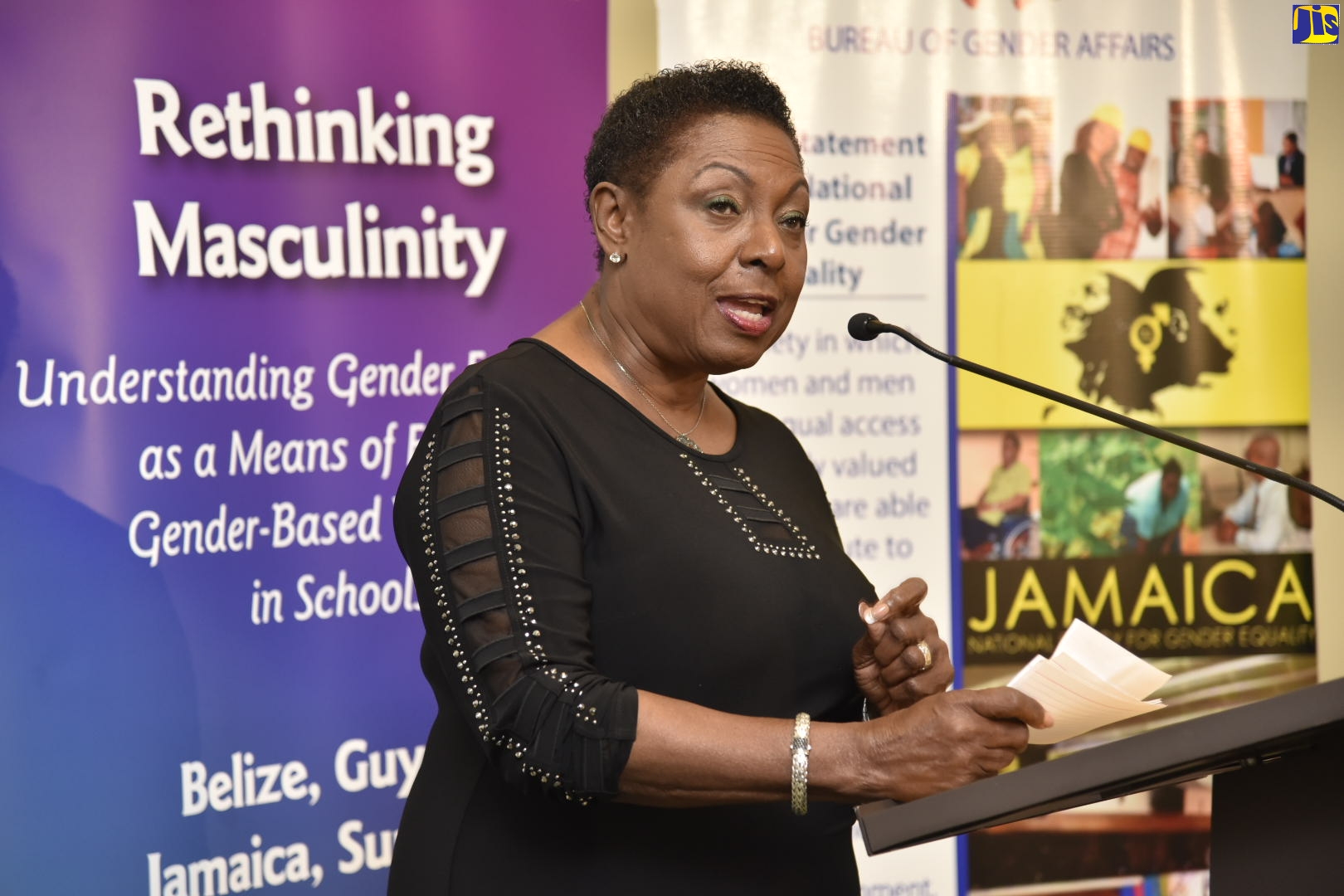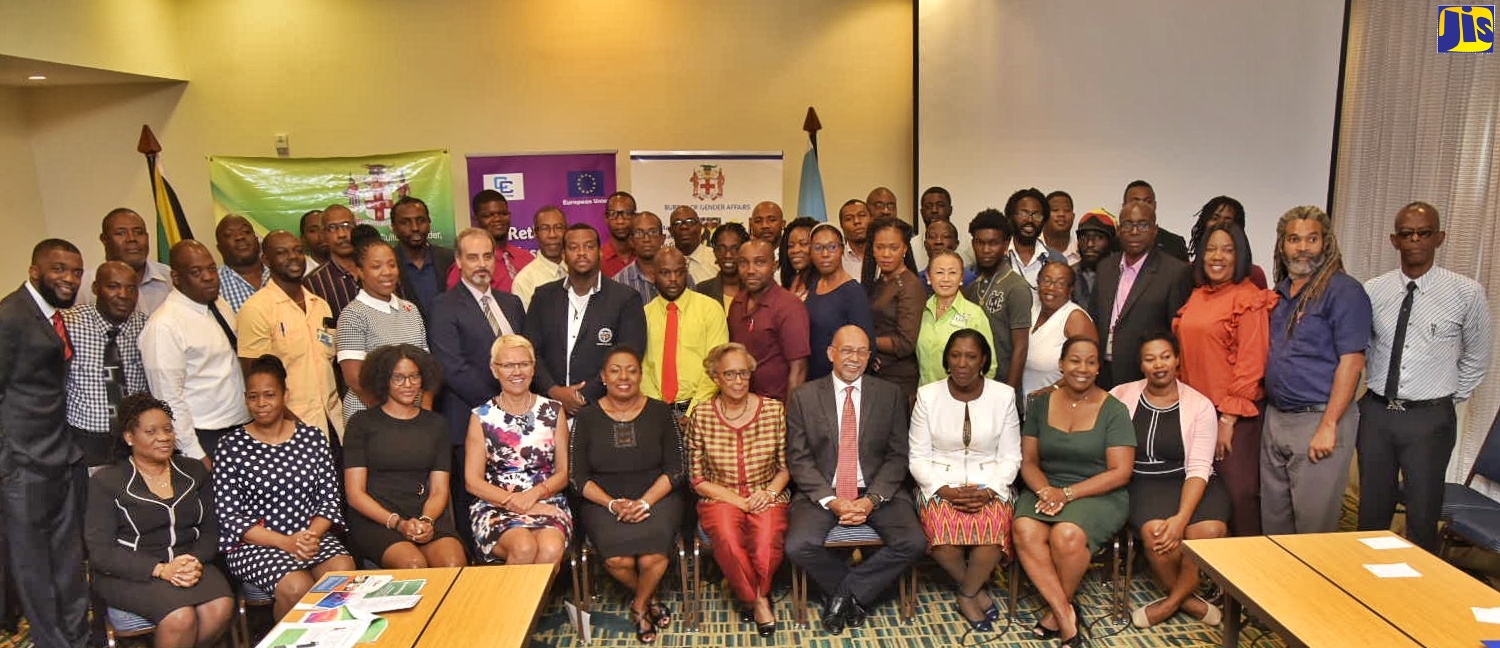Gov’t Committed To Addressing Issues Affecting Boys And Men – Grange
By: , September 27, 2019The Key Point:
The Facts
- “The Government of Jamaica’s medium-term socio-economic policy framework indicates that there are increased concerns for males, who are being labelled by some… as marginalised.
- “The Ministry has put several mechanisms in place to encourage men to become active agents of change and work collaboratively in achieving gender equality,” Minister Grange said.
The Full Story
Minister of Culture, Gender, Entertainment and Sport, Hon. Olivia Grange, says the Government remains committed to addressing issues affecting boys and men in the society as part of measures in promoting equality and eliminating gender-based violence.
“The Government of Jamaica’s medium-term socio-economic policy framework indicates that there are increased concerns for males, who are being labelled by some… as marginalised.
“The Ministry has put several mechanisms in place to encourage men to become active agents of change and work collaboratively in achieving gender equality,” Minister Grange said.
She was addressing the opening of a two-day Men and Masculinity Workshop at the Courtyard by Marriott hotel in New Kingston on Thursday (September 26).
Minister Grange noted that despite the achievements in reducing the gap between males and females in various social sectors, several inequities continue to plague the Jamaican society.
She said that among the concerns are the high rates of violence and fatherlessness among males and male underrepresentation in the economic and educational sectors, noting that these require “urgent attention”.
She noted that the Bureau of Gender Affairs, through its Special Service Desk for Men, has been reaching out to males.
The Bureau has also collaborated with various stakeholders to host sensitisation initiatives along with skills training, capacity-building and interventions aimed at addressing issues that affect men and boys.
The Men and Masculinity Workshop is being hosted by the Ministry in collaboration with the Caribbean Community (CARICOM) Secretariat and the European Union, and seeks to sensitise and empower leaders of male-based groups.
The staging of the two-day session under the theme ‘Rethinking masculinity, understanding gender equality as a means of ending gender-based violence in Caribbean schools’ is the direct result of recommendations emanating from a Youth, Masculinity and Violence Report, which the CARICOM Secretariat commissioned in 2012.
More than 1,000 students, aged 15 to 21, from five CARICOM countries, along with their parents and teachers, were surveyed. The countries are Belize, Guyana, Jamaica, Suriname, and Trinidad and Tobago.
The study identified several areas of concern, among them, that boys were being forced to conform with societal expectations or risk being labelled and ridiculed by their peers as well as adult groups; that aggression and physical violence continue to be viewed as normal male behaviour while similar acts by females are viewed negatively; and harmful beliefs exist among young males regarding the treatment of women and girls, which is often manifested in gender-based violence.
Attending the workshop are leaders of male-based outreach groups such as Men of God Against Violence and Abuse (MoGAVA), and teachers from educational institutions such as Jamaica College, Dunoon Technical and Donald Quarrie High schools in the Corporate Area; Yallahs High School, St. Thomas; Vere Technical High School, Clarendon; and Cornwall College, St. James.






